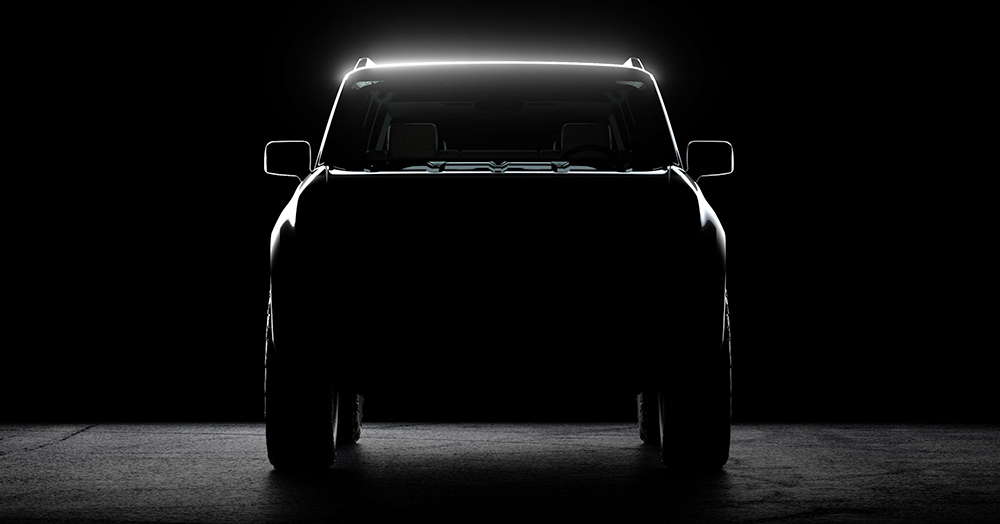
Driving into the Future: Scout Motors and the Revolution of Electric SUV Shopping
When you think about buying a new car, what comes to mind? Maybe you imagine walking into a flashy dealership filled with shiny vehicles, a salesperson greeting you enthusiastically, or maybe even navigating a complicated negotiation process over the price. For many, this experience can feel overwhelming or exhausting, especially when you’re just trying to find the right car for your needs. Well, guess what? The way we buy cars is about to get a major upgrade thanks to a new player in the electric vehicle world: Scout Motors.
Who is Scout Motors?
Founded with the support of Volkswagen, Scout Motors is targeting a sweet spot in the automobile market: electric SUVs. If you haven’t noticed, electric vehicles (EVs) are becoming more mainstream, with many people opting for them for their environmental benefits, lower energy costs, and advanced technology features. Among the many options now available, Scout Motors aims to stand out by focusing on simplicity and innovative technology.
Imagine this: instead of heading to a dealership and dealing with the often-hassled car buying process, you could use your mobile phone to buy your vehicle. From selecting the model and color to finalizing financial arrangements, everything could be done through an easy-to-use app. That’s Scout’s vision! They want to provide a seamless buying process that allows customers to purchase and manage their vehicles without the traditional stressors that come with car shopping. Now that’s a refreshing change!
The Challenges of Direct Sales
However, not everything is smooth sailing for Scout Motors. One huge hurdle they’re facing comes from the regulations in South Carolina, where they plan to open a manufacturing plant in Blythewood. As it stands, state laws prohibit manufacturers like Scout from selling their vehicles directly to consumers. This means that they will need to rely on established dealerships to reach their customers, which is a significant obstacle for the company.
This situation raises an interesting debate about the current car-selling system. The traditional dealership model has been around for decades, but Scout’s leadership argues that it complicates sales and ultimately drives up the cost for buyers. By dealing directly with the consumer, they believe they could streamline the process and offer better prices.
Scout’s team is pushing for changes in local laws to allow them to sell directly to consumers. They argue that these regulations don’t just make their lives harder; they also impede free market principles, which are all about competition and choice.
The Support and Controversy
Adding to the complexity of the situation is Governor Henry McMaster’s stance. He has expressed support for protecting local dealerships while also acknowledging the innovative approach Scout Motors is trying to take. This puts him in a tricky position, as he must balance traditional business interests with the exciting prospects of innovation and job creation that come with Scout.
It’s fascinating to consider how these decisions could change the landscape of car sales in the state. If Scout can successfully push for legislation that allows more freedom in sales practices, it could reshape how cars are bought—not just in South Carolina, but potentially in other states as well. However, if they cannot navigate these hurdles, they may need to consider selling their vehicles in states with friendlier regulations, which could mean that South Carolina loses out on valuable tax revenue and job opportunities.
The Impact of the New Plant
Speaking of job opportunities, Scout Motors’ new manufacturing plant in Blythewood is projected to open in 2027 and is expected to create up to 4,000 jobs! That’s a significant boost for the local economy and a promising sign for those entering the workforce. Many people might find employment directly tied to the electric vehicle industry, which is particularly intriguing as the world gradually shifts toward more sustainable transportation methods.
In addition to job creation, Scout has set ambitious production goals, aiming to produce around 200,000 vehicles each year. That’s a lot of electric SUVs to meet growing consumer demand! But here’s the catch: if they cannot sell their cars directly to consumers in South Carolina, they may need to divert their operations elsewhere, potentially hurting the state economy and losing out on the tax benefits associated with a new manufacturing facility.
Bridging the Gap Between Technology and Tradition
Now, let’s take a step back and consider what this whole situation means for us as consumers. In an age where almost everything can be handled online—from grocery shopping to banking—why should buying a car remain a complicated, in-person ordeal? Scout Motors is hoping to bridge the gap between modern technology and the traditional car-buying experience.
With the rise of apps and e-commerce, many young people are becoming accustomed to completing transactions through their phones. We use applications to order food, pay bills, and even book experiences. So why not the same for purchasing cars? Scout wants to make sure that the process is as straightforward and user-friendly as possible. It all boils down to convenience for consumers.
The Road Ahead for Electric SUVs
As we look to the future of the automotive industry, electric vehicles are likely to dominate the conversation. Environmental concerns are increasing, and more and more people want to make greener choices, highlighting the need for companies like Scout Motors to succeed. If Scout can pave the way for a technology-driven, direct-to-consumer model, it could inspire a broader shift in how cars are sold across the nation.
What happens next in South Carolina could set a precedent for similar challenges in other states. If more companies decide to follow Scout’s lead and advocate for changes, we may see a transformation in vehicle sales that leads to lower prices, better customer experiences, and the continuous growth of the electric vehicle market.
Conclusion: What Do You Think?
While the challenges that Scout Motors faces are significant, the potential for innovation and change is even greater. Will South Carolina lawmakers embrace this shift to allow for a modern buying process, or will they hold onto the traditional dealership model despite the benefits of direct sales? As developments unfold, it’s essential to stay informed and engaged with these changes that could revolutionize how we buy vehicles.
What do you think about Scout Motors’ approach to car sales? Would you prefer to buy your next vehicle directly through an app, or do you think the dealership experience is still necessary? Share your thoughts in the comments below!






